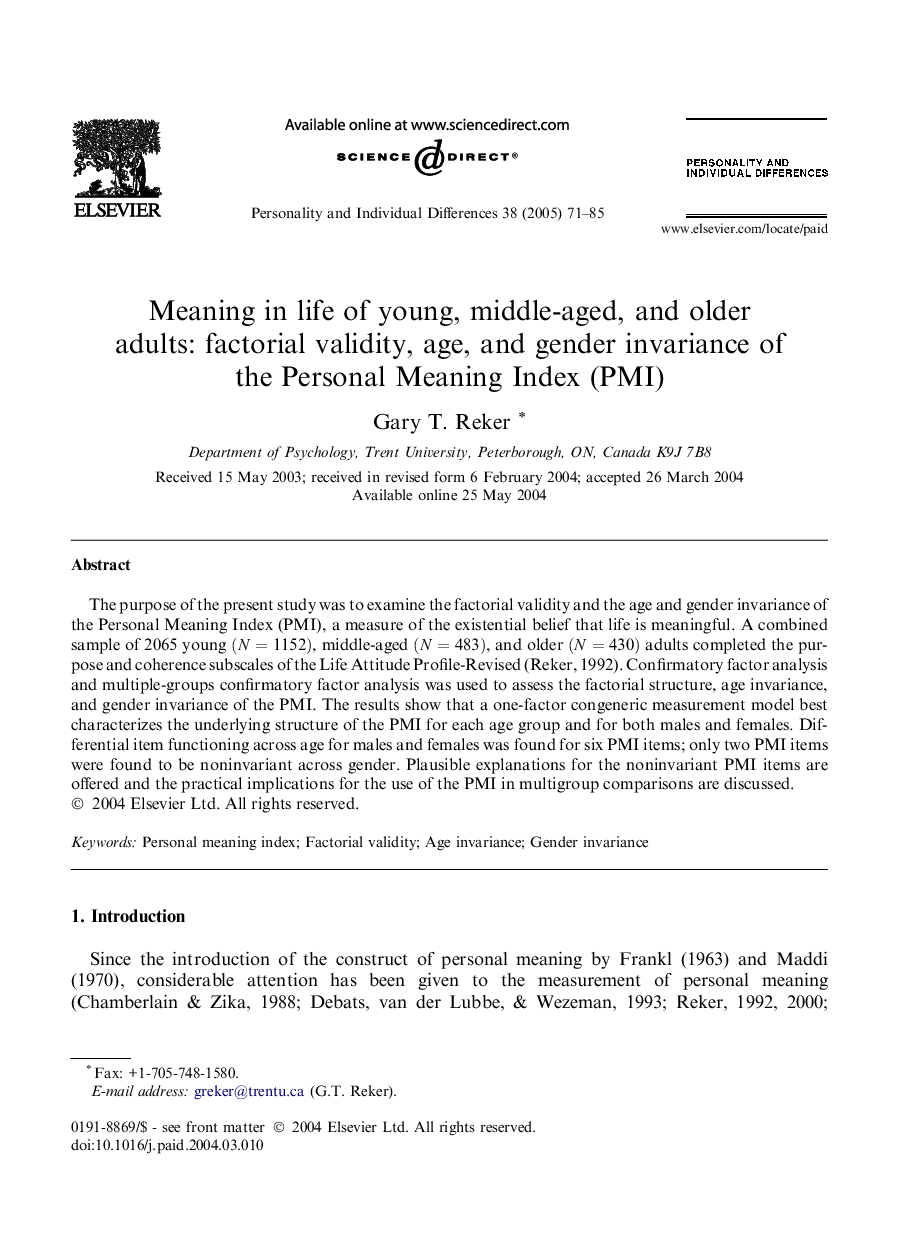| Article ID | Journal | Published Year | Pages | File Type |
|---|---|---|---|---|
| 10441198 | Personality and Individual Differences | 2005 | 15 Pages |
Abstract
The purpose of the present study was to examine the factorial validity and the age and gender invariance of the Personal Meaning Index (PMI), a measure of the existential belief that life is meaningful. A combined sample of 2065 young (N=1152), middle-aged (N=483), and older (N=430) adults completed the purpose and coherence subscales of the Life Attitude Profile-Revised (Reker, 1992). Confirmatory factor analysis and multiple-groups confirmatory factor analysis was used to assess the factorial structure, age invariance, and gender invariance of the PMI. The results show that a one-factor congeneric measurement model best characterizes the underlying structure of the PMI for each age group and for both males and females. Differential item functioning across age for males and females was found for six PMI items; only two PMI items were found to be noninvariant across gender. Plausible explanations for the noninvariant PMI items are offered and the practical implications for the use of the PMI in multigroup comparisons are discussed.
Keywords
Related Topics
Life Sciences
Neuroscience
Behavioral Neuroscience
Authors
Gary T. Reker,
